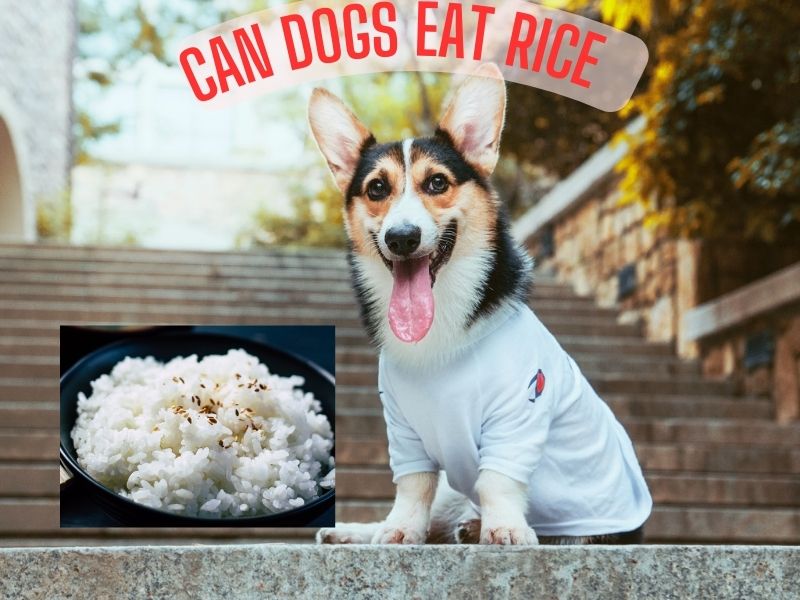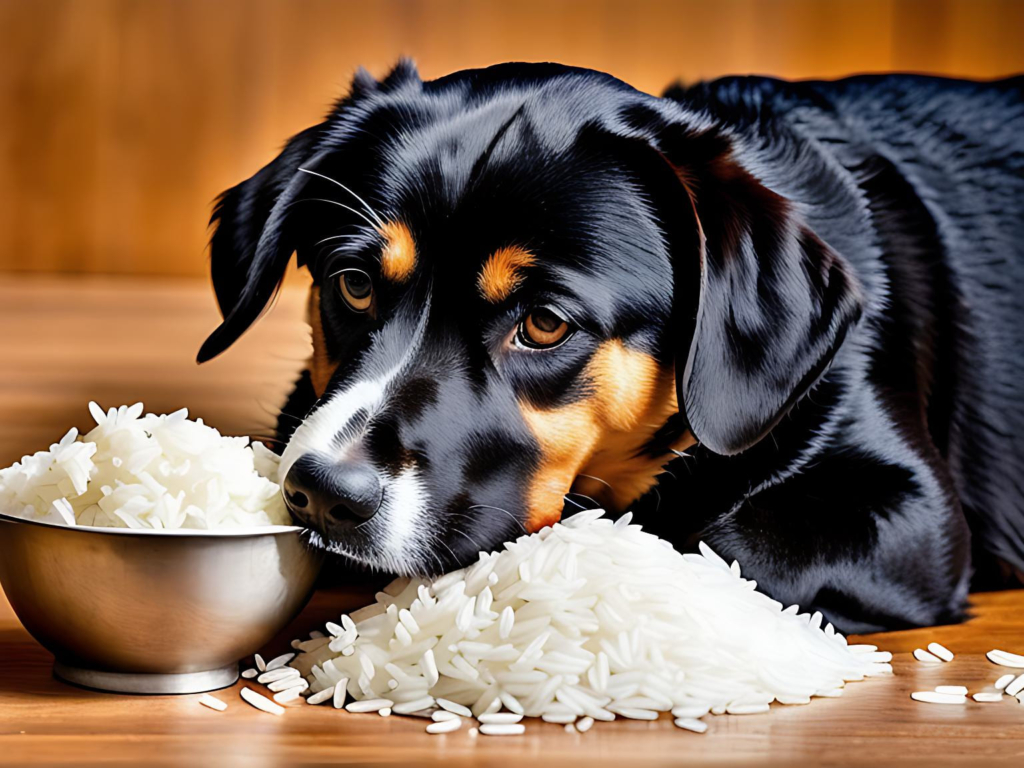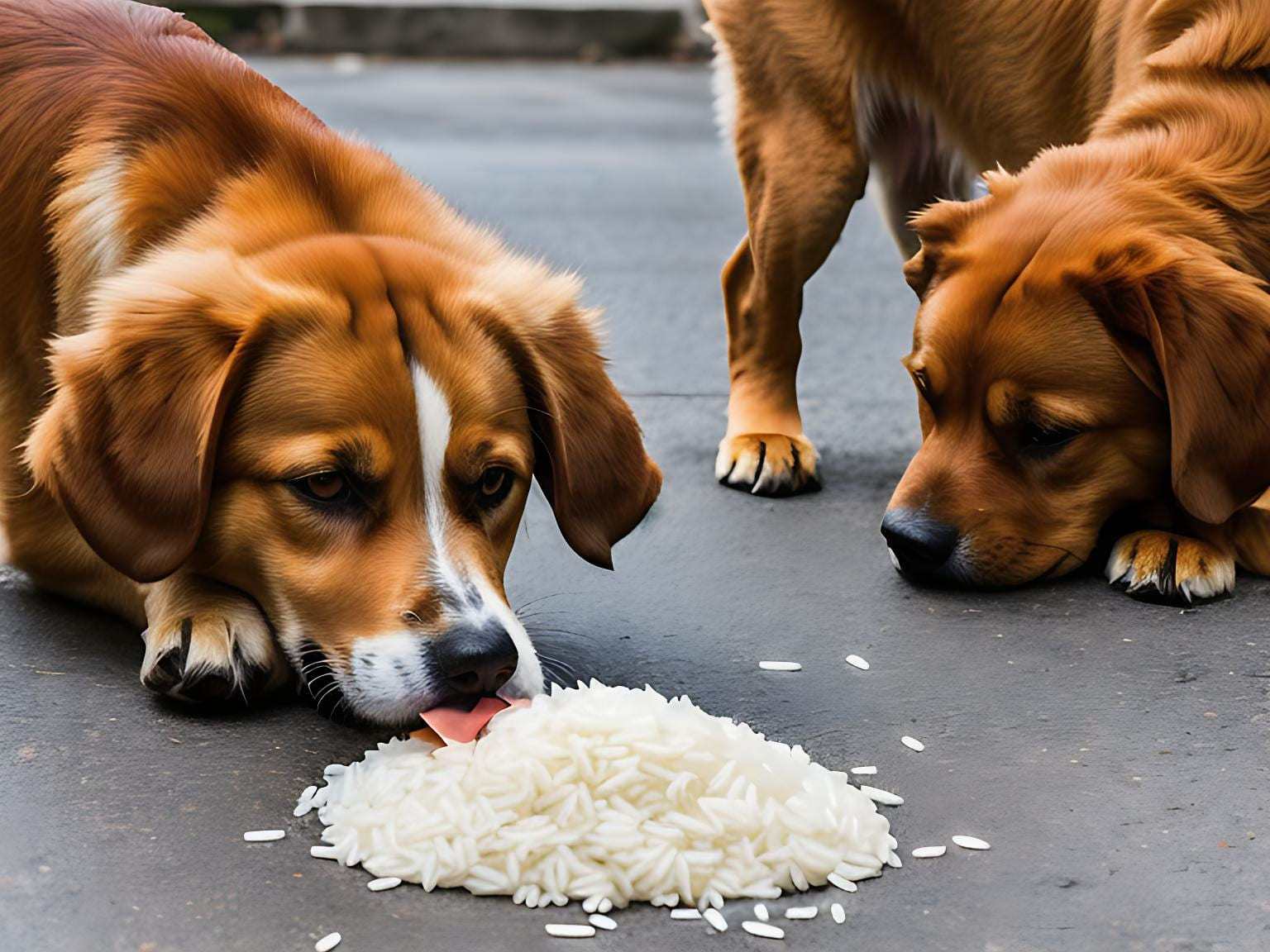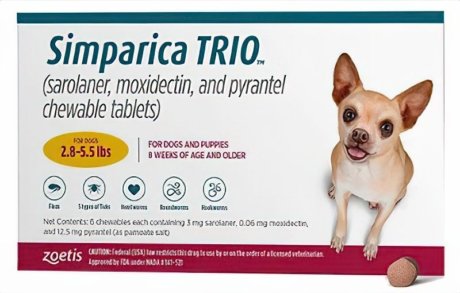Can Dogs Eat Rice | 8 Benefits, Risks, Can Feed Daily?
Dogs are our beloved furry pets, and we want to offer them with the greatest nutrition available. As a pet owner, you may be wondering if certain foods are healthy for dogs to consume. Rice is a staple in many cultures and is also a prominent ingredient in many dog meals. Can dogs eat rice? In this detailed guide, we’ll look at the benefits and risks of feeding rice to dogs, as well as suggestions for including it in their diet.
Benefits of Feeding Rice to Dogs
Rice is a great source of carbohydrates, which provide dogs with energy. Rice is very easy to digest, making it a common component in many commercial dog meals. Here are some extra advantages to feeding rice to dogs:
1. Helps with Digestive Issues
Rice is known for its ability to soothe upset stomachs in both humans and dogs. It’s easy to digest and can help with digestive issues such as diarrhea.
2. Gluten-Free Option
Rice is naturally gluten-free and can be a good option for dogs with gluten sensitivities or allergies.
3. High in Fiber
Brown rice, in particular, is high in fiber, which can aid in weight management and promote bowel regularity. Adding a small amount of brown rice to your dog’s diet can help them feel fuller for longer and maintain a healthy weight.
Risks of Feeding Rice to Dogs
While there are several benefits to feeding rice to dogs, it’s important to be aware of the potential risks as well. Here are some risks to keep in mind:

1. High Arsenic Levels
Rice is known to contain high levels of arsenic, which can be toxic to dogs in large quantities. It’s important to limit the amount of rice you feed your dog to avoid any potential health issues.
2. Weight Gain
Feeding your dog too much rice can cause weight gain, especially if it’s not balanced with other nutrients. Be sure to monitor your dog’s portion sizes and ensure that their diet is well-rounded.
3. Allergic Reactions
Some dogs may be allergic to rice, leading to symptoms such as itching, swelling, and gastrointestinal upset. If your dog experiences any of these symptoms after eating rice, stop feeding it to them immediately and consult with your veterinarian.
What Kind Of Rice Can Dogs Eat
Not all types of rice are safe for dogs, Dogs can eat, White rice, Brown Rice, Basmati Rice and other types of Rice. Here are some types of rice that are safe for dogs to eat:
Can Dogs Eat White Rice
White rice is safe for dogs in small amounts and can be a good option for dogs with digestive issues. However, it’s important to note that white rice lacks many of the nutrients found in brown rice.
Can Dogs Eat Brown Rice
Brown rice is a healthier alternative than white rice due to its increased fibre content. However, because of the greater calorie content, it should be consumed in moderation. A modest quantity of brown rice added to your dog’s food can supply them with the fibre they require for good digestion.
Can Dogs Eat Basmati Rice
Basmati rice is a low glycemic index option that can help regulate blood sugar levels in diabetic dogs. It’s also a good source of energy and can provide your dog with the nutrition they need.
Can Dogs Eat Wild Rice
Wild rice is high in protein and antioxidants and can be included in modest amounts in a dog’s diet. However, keep in mind that wild rice has more calories than other forms of rice, so keep an eye on your dog’s portion sizes.

Can Dogs Eat Jasmine Rice
Yes, dogs can eat jasmine rice in moderation. Jasmine rice is a type of long-grain rice that is commonly consumed by humans. It is generally safe for dogs to eat plain, cooked jasmine rice as part of a balanced diet. However, keep in mind that rice should be given in moderation and should not make up the majority of a dog’s diet.
Can Dogs Eat Rice Cakes
Yes, dogs can eat plain rice cakes in moderation. Rice cakes are a low-calorie snack made from rice grains. They can be a suitable occasional treat for dogs, but it’s important to ensure that the rice cakes do not contain any added flavours, seasonings, or artificial ingredients that may be harmful to dogs. Always check the ingredients before offering rice cakes to your dog.
Can Dogs Eat Beans And Rice
Yes, dogs can eat plain, cooked beans and rice in moderation. Beans and rice can provide dogs with additional protein and fiber in their diet. It’s important to avoid seasoning the beans and rice with any spices, oils, or additives that may be harmful to dogs. Additionally, it’s best to introduce new foods gradually and monitor your dog for any signs of digestive upset.
Can Dogs Eat Cauliflower Rice
Yes, dogs can eat cauliflower rice in moderation. Cauliflower rice is a low-calorie alternative to traditional rice made from finely chopped or processed cauliflower. It can be a healthy addition to a dog’s diet, provided it is cooked plain without any added seasonings or spices. However, as with any new food, it’s important to introduce cauliflower rice gradually and monitor your dog’s response.

Can Dogs Eat Fried Rice
It is not recommended to feed dogs fried rice. Fried rice often contains additional ingredients like onions, garlic, soy sauce, and oils, which can be harmful to dogs. Additionally, the frying process adds extra fat and calories, which can lead to digestive upset or weight gain in dogs. It’s best to stick to plain, cooked rice without any added ingredients when feeding rice to your dog.
Can Dogs Eat Rice Krispie Treats
Rice Krispie treats are not recommended for dogs. These treats typically contain marshmallows, sugar, and added flavours, which are not suitable for a dog’s diet. Moreover, some commercially available Rice Krispie treats may also contain chocolate or other harmful ingredients. It’s best to avoid feeding Rice Krispie treats to your dog and opt for safe, dog-friendly treats instead.
Can Dogs Eat Yellow Rice
Dogs can eat plain, cooked yellow rice in moderation. Yellow rice is typically seasoned with turmeric or saffron, which gives it the yellow color. These seasonings are generally safe for dogs in small amounts. However, it’s important to avoid using any additional spices or ingredients that may be harmful to dogs. Plain, cooked yellow rice can be offered as an occasional treat or mixed with other dog-safe foods.

Can Dogs Eat Rice Everyday
While dogs can eat rice as part of their diet, feeding rice every day may not be necessary or ideal. Dogs require a balanced diet that includes a variety of nutrients from different food sources. Rice alone does not provide all the essential nutrients that dogs need. It’s best to consult with your veterinarian to determine the appropriate diet and feeding routine for your specific dog’s needs.
Can Dogs Eat Cooked Rice
Yes, dogs can eat cooked rice as long as it is plain and free from any added ingredients that may be harmful to dogs. Cooked rice can be a gentle and easily digestible food option for dogs, particularly when they have digestive upset or as part of a bland diet
How to Include Rice in a Dog’s Diet
If you’re interested in adding rice to your dog’s diet, here are some tips to keep in mind:
1. Mix Rice with Other Ingredients
Rice can be cooked and mixed with other dog-friendly ingredients such as chicken, beef, vegetables, or fruits to create a balanced meal for your dog.
2. Consult with Your Vet
Before adding rice to your dog’s diet, it’s important to consult with your veterinarian to ensure that it’s the right choice for your dog’s individual needs. Your vet can help you determine the appropriate portion size and frequency of rice in your dog’s diet.
3. Monitor Portion Sizes
As mentioned earlier, feeding your dog too much rice can cause weight gain. It’s important to monitor portion sizes and ensure that rice is balanced with other nutrients in your dog’s diet.

4. Avoid Processed Rice Products
Avoid feeding your dog processed rice products, such as rice cakes or crackers, as these can contain added sugars and preservatives that can be harmful to dogs.
Conclusion on Can Dogs Eat Rice:
In conclusion, when consumed in moderation and in the proper form, rice may be a safe and healthy supplement to a dog’s diet. Rice can offer energy to dogs, aid digestion, and enhance bowel regularity. However, you should be aware of the potential risks and contact with your veterinarian before introducing rice to your dog’s diet. You are able to ensure that your beloved buddy is getting the finest nutrition possible by following the ideas and instructions presented in this article.
Can Dogs Have Cinnamon | 5 Benefits, Side Effect, Safety
Can Dogs Eat Avocado | 10 Benefits, Health Issues, Risks
Can Dogs Eat Potatoes | Nutrition, 8 Benefits, Risk, Health
Frequently Asked Questions on Can Dogs Eat Rice:
-
Can rice cause diarrhea in dogs?
Rice is actually a popular remedy for dogs with diarrhea, as it is easy to digest and can help soothe upset stomachs. However, feeding your dog too much rice can cause diarrhea, so it’s important to monitor portion sizes and introduce rice gradually.
-
Can dogs eat rice every day?
While rice may be a healthy supplement to a dog’s diet, it should not be their exclusive source of nutrients. Dogs require a well-balanced meal that includes protein, lipids, vitamins, and minerals, so combine rice with other dog-friendly items and speak with your veterinarian to ensure that your dog is getting all of the nutrients they require.
-
Is brown rice better than white rice for dogs?
Yes, brown rice is considered a healthier alternative for dogs than white rice since it has more fibre and minerals. However, due to its greater calorie content, brown rice should be fed in moderation.
-
Can rice be harmful to dogs?
Overfeeding your dog on rice might result in weight gain and other health problems. Furthermore, rice can contain significant levels of arsenic, which is dangerous to dogs in big amounts. Before making any big modifications to your dog’s diet, restrict the quantity of rice you feed them and talk with your veterinarian.
-
How should I prepare rice for my dog?
Rice should be cooked thoroughly and served plain, without any added spices or seasonings. You can mix cooked rice with other dog-friendly ingredients, such as chicken or vegetables, to create a balanced meal for your dog. It’s important to monitor portion sizes and avoid feeding your dog processed rice products.
-
Can rice cause allergies in dogs?
While rice is considered a hypoallergenic dog food, which means it is less likely to induce an allergic reaction than other foods, certain dogs may be sensitive to it. Skin irritation, itching, and gastrointestinal problems are all symptoms of a rice allergy in dogs. Consult your veterinarian if you believe your dog has a rice allergy.
-
Can puppies eat rice?
Yes, puppies can eat rice in moderation, as long as it is cooked thoroughly and served plain. However, it’s important to ensure that puppies are getting all the nutrients they need for healthy growth and development, so rice should be mixed with other dog-friendly ingredients and portion sizes should be monitored.
-
Can senior dogs eat rice?
Yes, senior dogs may eat rice in moderation if it is well cooked and provided plain. However, older dogs may have different nutritional demands than younger dogs, so contact with your veterinarian to verify that their food is age and health-appropriate.
-
Can dogs with diabetes eat rice?
Diabetes in dogs need a well-balanced diet strong in protein and fibre and low in carbs. While rice can be provided to diabetic dogs in moderation, it should be balanced with other low-carbohydrate items. It is critical to speak with your veterinarian before developing a diabetic dog feeding plan.
-
Can dogs eat rice if they have kidney disease?
Dogs with kidney problems require a low-protein, high-phosphorus diet. While rice is a low-protein grain that may be included in a kidney-friendly diet, it is vital to work with your veterinarian to build a nutrition plan that is tailored to your dog’s individual condition. Dogs with renal illness may need to avoid rice entirely in some situations.
Recommended related to Can Dogs Eat Rice:
Can Dogs Eat Shrimp | 9 Benefits, Health Concerns, Risks





























